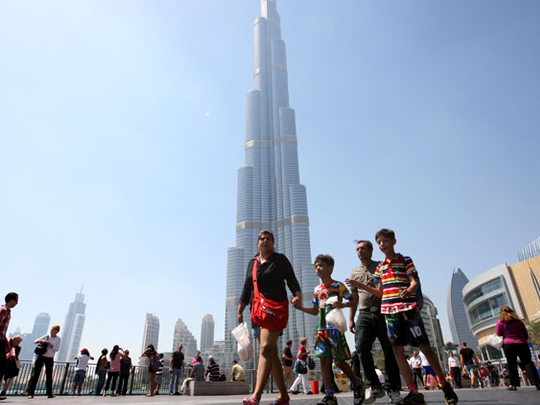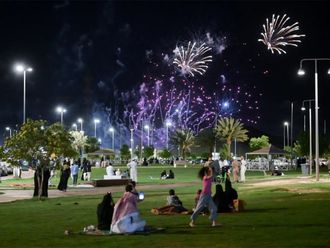
The weakening Indian rupee is unlikely to have a significant impact on the local tourism market as holiday makers look set to travel.
Industry experts suggest that Indian travellers are unlikely to cancel or change plans to visit the UAE in the coming months.
Bill Horsley, General Manager at Al Futtaim Travel, said the weakened currency was unlikely to impact the tourism sector. There is a higher chance of a spike in travel with travellers looking to beat any increase in airfares caused by weak currency, he added.
Horsley said that Dubai-based Indians would most likely rethink trips home and instead opt to bring out family members.
John Podaras, Partner at Hotel Development Resources, a hotel consultancy firm in Dubai agreed with Horsely.
Cautious consumers
People make travel plans 3-4 months ahead of time, he said, so there it is unlikely to see any impact of weak rupee over the coming months.
Podaras said that the weakened currency was more likely to impact long haul destinations than short haul flights to the UAE.
Christopher Hewett, Senior Consultant at TRI Hospitality Consulting, said the middle to high earning Indian traveller, who are still to eager to travel, would not be affected by the currency drop.
Indian travellers would become more cautious consumers, Podaras said, especially when purchasing holiday packages.
Despite caution, there would be little chance of a rise in budget airline and hotel bookings as Indian holidaymakers are brand-loyal, he said.
Hotel chains such as Citymax are expected to benefit from their Indian clientele, Podaras said, and would be likely to become flexible with rates.
However, Hewett said caution would be high among low end corporate and independent travellers who often book at short notice.
A weak rupee might mean an increase in reservations at budget hotels in the UAE and that the ongoing success of hotels in Sharjah and Deira would continue, Podaras said.
Destinations
The biggest challenge would be come from campaigns driven by other destinations targeting the Indian travellers wallet and desire to spend less, Podaras added.
Short haul destinations like Sri Lanka and further to South East Asia can offer much more attractive pricing, he said.
Hewett agreed and said that travellers may hedge a little bit and take a week to see where the currency drops.
“To a degree it will also depend on what happens to rates and to packages offered by competing destinations,” he said.
Podaras and Hewett said the impact of the weakened rupee wouldn’t be felt for at least another 4 - 6 months. As holiday makers over the current period had already booked their trips.
Podaras said that the feedback from hotels was that they hadn’t noticed any significant changes in bookings. TCA Abu Dhabi, who are running a campaign in New Delhi with Indian travel company TUI this month, appear unmoved by the weakened currency.
India was Abu Dhabi’s largest overseas source market in the first six months of 2013.
Indian factor
Indian nationals staying in Abu Dhabi hotels and hotel aparments increased 22 per cent to 80,179 in the first six months of 2013 compared to the previous year, Mubarak Al Nuaimi, Director, Promotions & Overseas Offices, Abu Dhabi Tourism & Culture Authority (TCA Abu Dhabi) said in email.
The 80,179 Indian nationals accounted for 334,238 guest nights — up 43 per cent on 2012 and stayed an average of 4.17 nights — an increase of 17 per cent, Al Nuaimi added.
Al Nuaimi said, the Indian market would continue to be a core focus for TCA Abu Dhabi with the authority staging five roadshows across the India later this year.
Similarly, Dr. Ahmad Belhoul, CEO, Strategy and Tourism Sector Development at Dubai’s Department of Tourism and Commerce Marketing (DTCM) said in an email that, “Travellers from India are incredibly important to the Dubai tourism market.” —
The 463,175 visitors from India to Dubai in the first of 2013 were a 15.8 increase on previous year numbers.
Belhoul attributes the spike in visitor numbers to growth in the emerging middle class, first-time international travellers, and targeted destination marketing campaigns.
Belhoul said he expected to see an influx of Indian visitors to Dubai during the second half of 2013.












